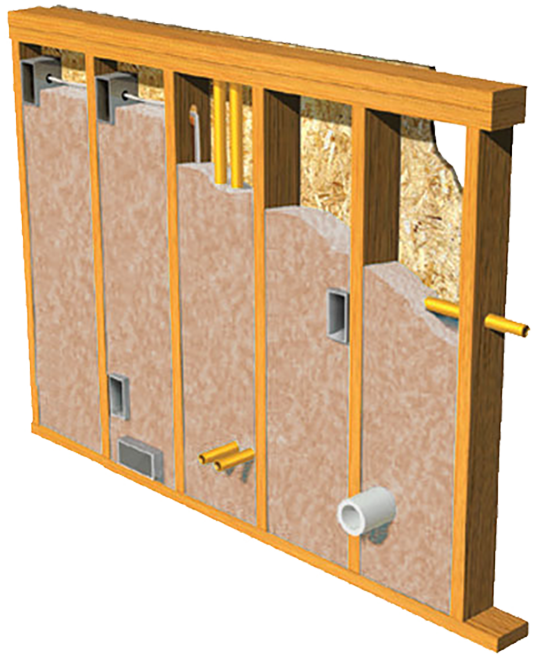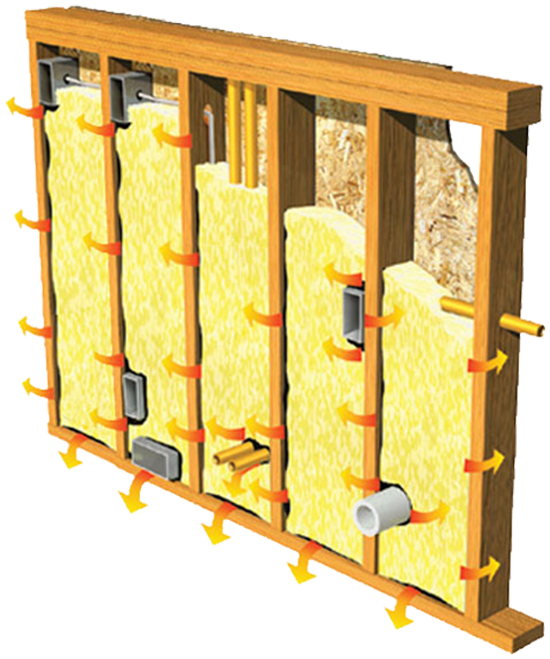Spray Foam Insulation is without a doubt the single largest advancement in ‘Green’, ‘Super Energy Efficient’ insulation technology available today. Foam provides a significantly quieter, consistently more comfortable, healthy living environment and is also state-of-the-art in energy cost savings. Polyurethane insulation offers solutions to just about everything that has troubled architects, builders and homeowners for years.
| FEATURE | SPRAY FOAM | FIBERGLASS | MINERAL WOOL |
| Meets air barrier requirements | YES | NO | NO | Easily insulates irregular or hard to reach spaces | YES | NO | NO | No harmful emissions after installation | YES | NO | NO | Adds structural integrity | YES | NO | NO | Will not shrink over time | YES | NO | NO | Not damaged by water | YES | NO | NO | Controls airborne sound transfer | YES | YES | YES | No sagging or settling | YES | NO | NO | Vapor barrier | YES | NO | NO | No food value to pests or rodents | YES | NO | NO |
Traditional batt insulation is only stapled, or placed into the wall cavities and does not seal the stud and wall cavities from end to end, or top to bottom. Air infiltration can pass through these gaps, making it far less efficient than spray foam insulation. Spray foam not only adheres to, but forms to the walls and floors to create a tight seal and insulating barrier that stops this air leakage.
When it comes to insulation no competing product can compare to the features of spray foam. Traditional insulation like fiberglass was developed more than half a century ago to provide a single benefit: R-value, which is the same as stopping heat flow by means of conduction. In those days, little thought was devoted to environmental or health impact. Obviously, home owners’ expectations and building science has developed tremendously over the last 50 years, culminating in the perfection of foam insulation as the only sensible option for today’s challenges.
Using spray foam insulation to insulate your home or business can contribute significantly to reducing the environmental stress faced by the world today. Spray foam insulation ensures that your home will maintain the highest standards of energy efficiency and as a result, reduce the carbon emissions produced by the burning of fossil fuels needed to heat and cool most buildings.
Closed-cell spray foam insulation can reinforce exterior walls when sprayed in stud cavities. Closed-cell SPF adheres to both the exterior sheathing and wall studs to enhance the overall structural integrity of a wall assembly. With the installation of spray foam, an exterior wall becomes more rigid and thereby more resistant to compression and shearing, and so it can be said to have a greater “racking strength” than a typical wall assembly.
Spray Foam Insulation

Spray foam insulation provides an edge to edge air seal effectively blocking random air leakage and moisture intrusion.
Batt Insulation

Air escapes easily through and around fibrous batt insulation, decreasing insulation efficiency and trapping dirt and moisture in the fibers.







